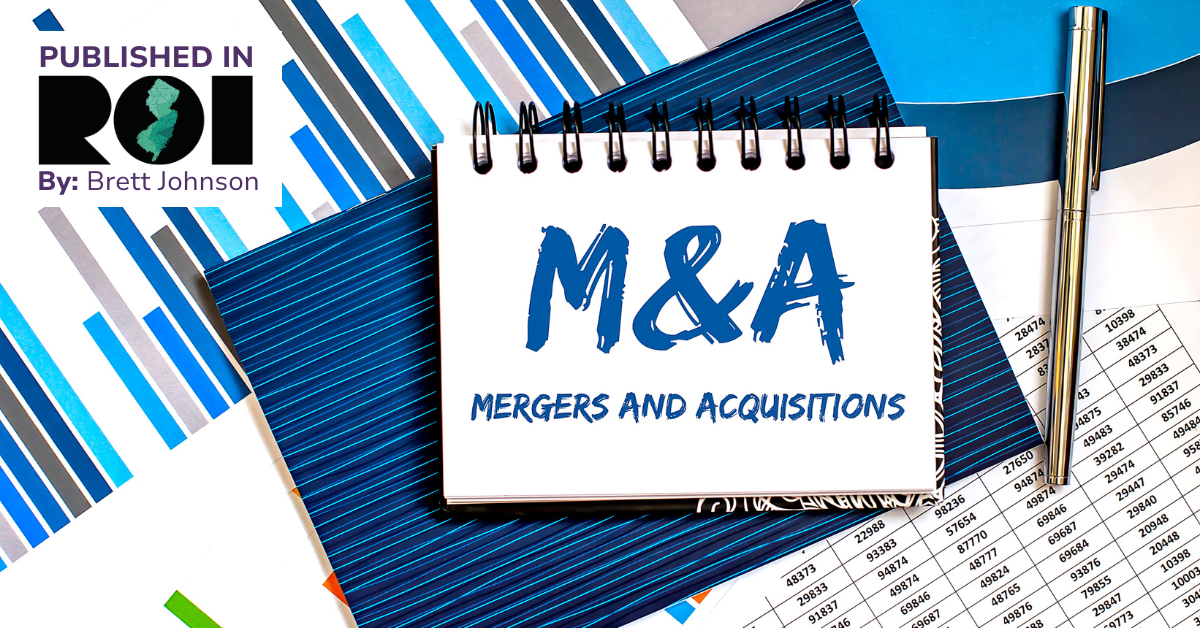In terms of how much excitement it would seem to generate, upcoming highly invasive audits might rank several spots below trips to the dentist.
But mergers & acquisitions expert Ari Fuchs often finds today that the many investigations done into a company prior to a merger or acquisition is less like pulling teeth than anyone expects.

In fact, Fuchs, Managing Director at Rochelle Park M&A advisory firm the DAK Group, said he’s had sellers in M&A transactions come away from those experiences with an education that they viewed as positive.
“The due diligence process, the invasiveness, is here to stay, because it’s helping both sides,” he said. “Buyers are reducing their risks in transactions, so the benefits are obvious there. But, for sellers, it’s helping them understand their company on a far more granular basis. They can also identify potential issues to solve or address in advance of transactions.”
The fact is, as Fuchs explained, there’s an amplified focus today on the due diligence that precedes an M&A deal. That usual process is delving deeper, he said, and occupying a longer timeline than before in the deal-making process. Once-apprehensive sellers are learning to not only prepare for that, they’re seeing benefits in identifying potential red flags for themselves.
In short, no one wants to have any surprises.
“There’s an aversion to risk from a buyer’s perspective, which goes hand-in-hand with a new focus on the sustainability of earnings,” he said. “Something we saw arise immediately in the post-pandemic environment was concerns about whether run-ups in earnings were sustainable.”
More due diligence is also one of the ways of thwarting a rising trend of M&A legal disputes. According to a survey of M&A practitioners and lawyers done by Berkeley Research Group, about 6 in 10 professionals saw more disputes last year than the year before, and more than half expected that volume to increase this year.
Companies forging partnerships can have a falling-out regarding anything from standard legal or financial details of a business to mismatches in the information technology and cybersecurity department.

Monica Vir of Lindabury, McCormick, Estabrook & Cooper P.C. said there’s also an increased emphasis on making sure there’s alignment on companies’ approaches to environmental, social & governance, or ESG.
“People are more concerned with how their business is adapting to climate change or other ESG value propositions,” she said. “It’s not just having a product to sell. It’s about how businesses treat employees and whether they’re happy, whether that business has an overall consideration of today’s market with respect to diversity and socioeconomics.
“All of that goes to the creation of a value proposition: I’m a better company than competitors because I’ve considered all of those factors.”

Nick San Filippo, partner at Roseland-based Lowenstein Sandler LLP, said there’s an understanding today that all aspects of a business are going to be put under a microscope.
“This is something sellers going to market, particularly those represented by sophisticated investment bankers, already expect,” he said. “They’re getting cleaned up and scrubbed; they’re getting their ducks in a row and doing legal diligence before they even go into the market.”
The added scrutiny not only streamlines the deal-making process, San Filippo added, it’s also one of the ways a high-performing company can fetch high prices.
“There’s still opportunities for quality companies to get incredible multiples when they’ve been adequately advised and have done all the preparatory work,” he said. “There’s a tremendous amount of capital going after businesses when there is that.”
Vir, partner and co-chair of an M&A group at her Westfield-based firm, said it goes both ways: Sellers want to prove they’re worth the cost of admission; buyers want some assurance of the value they’re receiving.
Especially for businesses not in industries where M&A demand is sky-high, such as artificial intelligence technology or alternative energies, there’s a need — and a willingness on both sides of a transaction — to tread carefully.
“More traditional industries such as retail are still finding their footing right now,” she said. “There’s some reluctance about deploying capital, but, we have some encouraging signs. There’s money out there. There’s just also more of a (focus on being selective) in spending it.”
On The Rise
As a follow-up to one of the slowest years in recent memory for mergers & acquisitions activity, 2024 is proving to be a turning point for the industry’s professionals.
Nick San Filippo of Lowenstein Sandler LLP said there’s been a stronger market for deal-making this year than there was throughout 2023.
“We’re still far from the feverish pace of pre-pandemic times,” he said. “But, what we had last year is sellers not meeting expectations that they were going to sell at a multiple (over earnings) that they were pre-pandemic. Slowly, there was a recognition that the way businesses are valued is lower in this post-pandemic market.”
San Filippo credits the trend of sellers approaching the M&A market with much more advanced preparation than ever. They’re making sure they have a good story to tell, and the due diligence to provide as citations.
And, perhaps most significantly, institutional buyers are more comfortable this year with where interest rates are, and where they’re expected to stay, according to Ari Fuchs of the DAK Group. Fuchs explained that there’s some belief rates won’t increase, and that there could be at least one rate cut if the economic data supports it.
Equity firms still have a lot of capital to deploy, he added, and the downward pressure on rates is going to drive more activity — particularly in attractive markets for buyers.
And the Garden State happens to be one of those markets.
“What really keeps buyers coming back (to the New Jersey market) is the educated workforce, which is important from the buyers’ perspective,” Fuchs said. “Combined with the growth of local brick-and-mortar industries and equally compelling growth from fintech, health care services and workplace technology sectors, it ultimately makes for high-quality M&A targets in New Jersey.”





